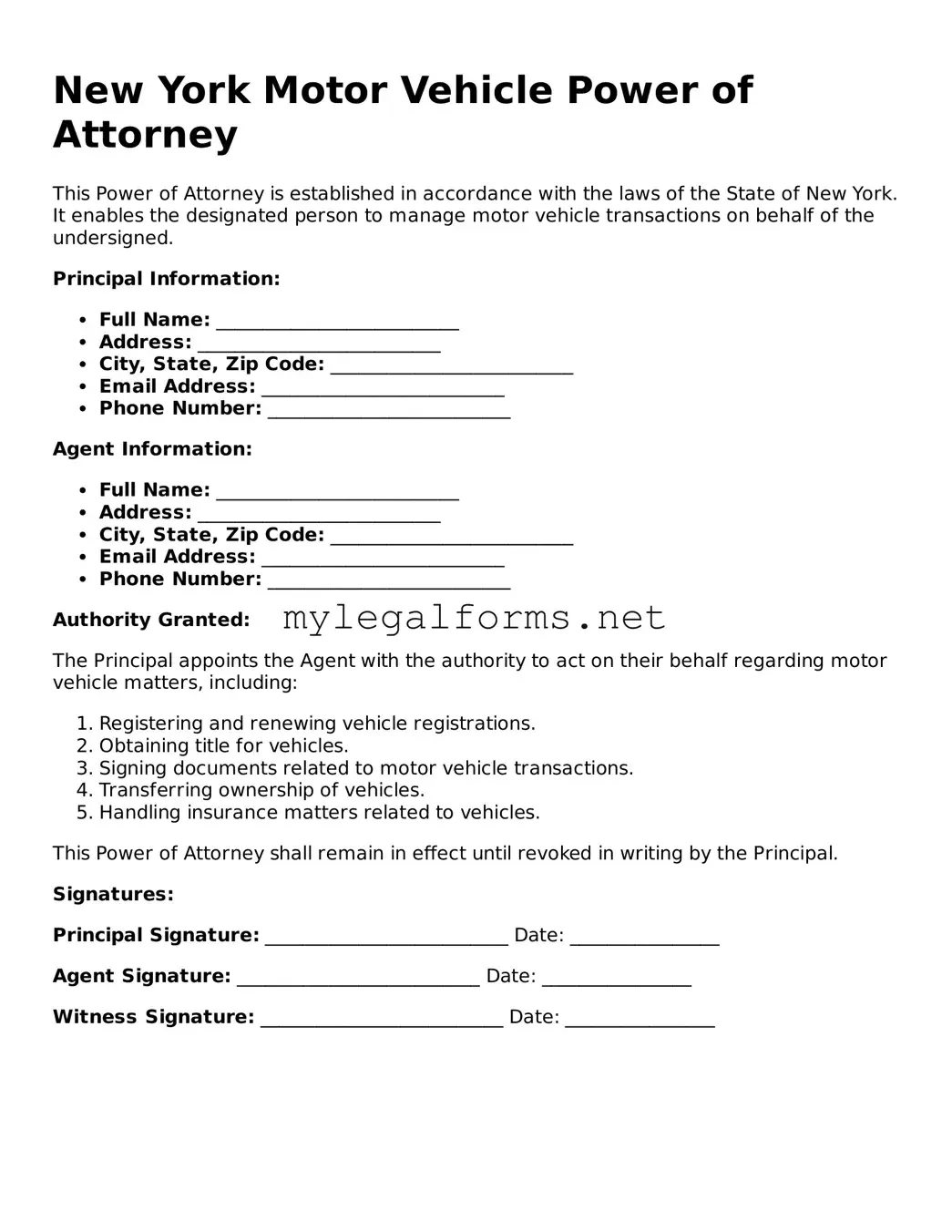Motor Vehicle Power of Attorney Document for New York State
The New York Motor Vehicle Power of Attorney form allows an individual to designate another person to handle specific tasks related to their vehicle. This can include signing documents, transferring ownership, or dealing with the Department of Motor Vehicles on their behalf. By using this form, vehicle owners can ensure their affairs are managed smoothly and efficiently, even when they cannot be present.
Launch Motor Vehicle Power of Attorney Editor

Motor Vehicle Power of Attorney Document for New York State
Launch Motor Vehicle Power of Attorney Editor

Launch Motor Vehicle Power of Attorney Editor
or
⇓ PDF Form
Complete the form at your pace — fast
Finish your Motor Vehicle Power of Attorney online and download the final version.